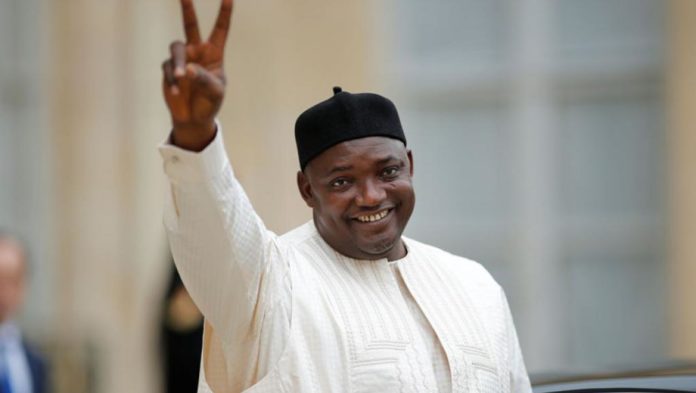OPINION
Upholding Responsibility: A Call to Fairness in Assessing Gambian President Adama Barrow
By Bakary J Janneh
In the dynamic landscape of politics, criticism and praise are natural facets of public discourse. However, when critique veers into unfounded comparisons and personal grievances, it undermines the collective responsibility we bear towards our nation’s progress. In the case of Gambian President Adama Barrow, recent portrayals of him as a tyrant, especially when juxtaposed with the era of former President Jammeh, require careful scrutiny and a commitment to fairness.
It is undeniable that every administration has its strengths and weaknesses, and President Barrow’s tenure is no exception. Yet, to paint him solely through the lens of individual grievances risks distorting the broader picture of his leadership and the challenges facing The Gambia. While constructive criticism is essential for accountability and improvement, it must be grounded in factual analysis rather than emotive rhetoric.
Comparing President Barrow to former President Jammeh is not only unfair but also a disservice to the progress The Gambia has made since the transition. The dark shadow of Jammeh’s authoritarian regime loomed large over the country, characterized by human rights abuses, suppression of dissent, and a culture of fear. To equate Barrow’s leadership with such a legacy is not only inaccurate but insulting to the collective efforts of Gambians who courageously fought for democratic change.
In 2024, as we navigate the complexities of governance and nation-building, our focus should be on fostering unity, strengthening institutions, and advancing the welfare of all citizens. President Barrow, like any leader, should be held accountable for his actions and policies, but this must be done in a manner that upholds the principles of fairness, objectivity, and respect for due process.
Moreover, our collective responsibility extends beyond mere critique to active engagement in shaping the future of our nation. Instead of resorting to divisive rhetoric or dwelling on past grievances, we must channel our energies towards constructive dialogue, civic participation, and contributing to the positive transformation of our society.
It is imperative that we refrain from succumbing to the temptation of simplistic narratives or character assassinations. The challenges facing The Gambia are multifaceted and require nuanced approaches that prioritize the common good over narrow interests. By fostering a culture of tolerance, accountability, and inclusivity, we can build a stronger and more resilient nation for generations to come.
In conclusion, as we navigate the complexities of governance and democracy, let us uphold the values of fairness, integrity, and unity. President Adama Barrow should be judged based on his merits and actions, rather than unfair comparisons or individual grievances. Together, let us reaffirm our commitment to building a brighter future for The Gambia, guided by the principles of justice, equality, and collective responsibility.




